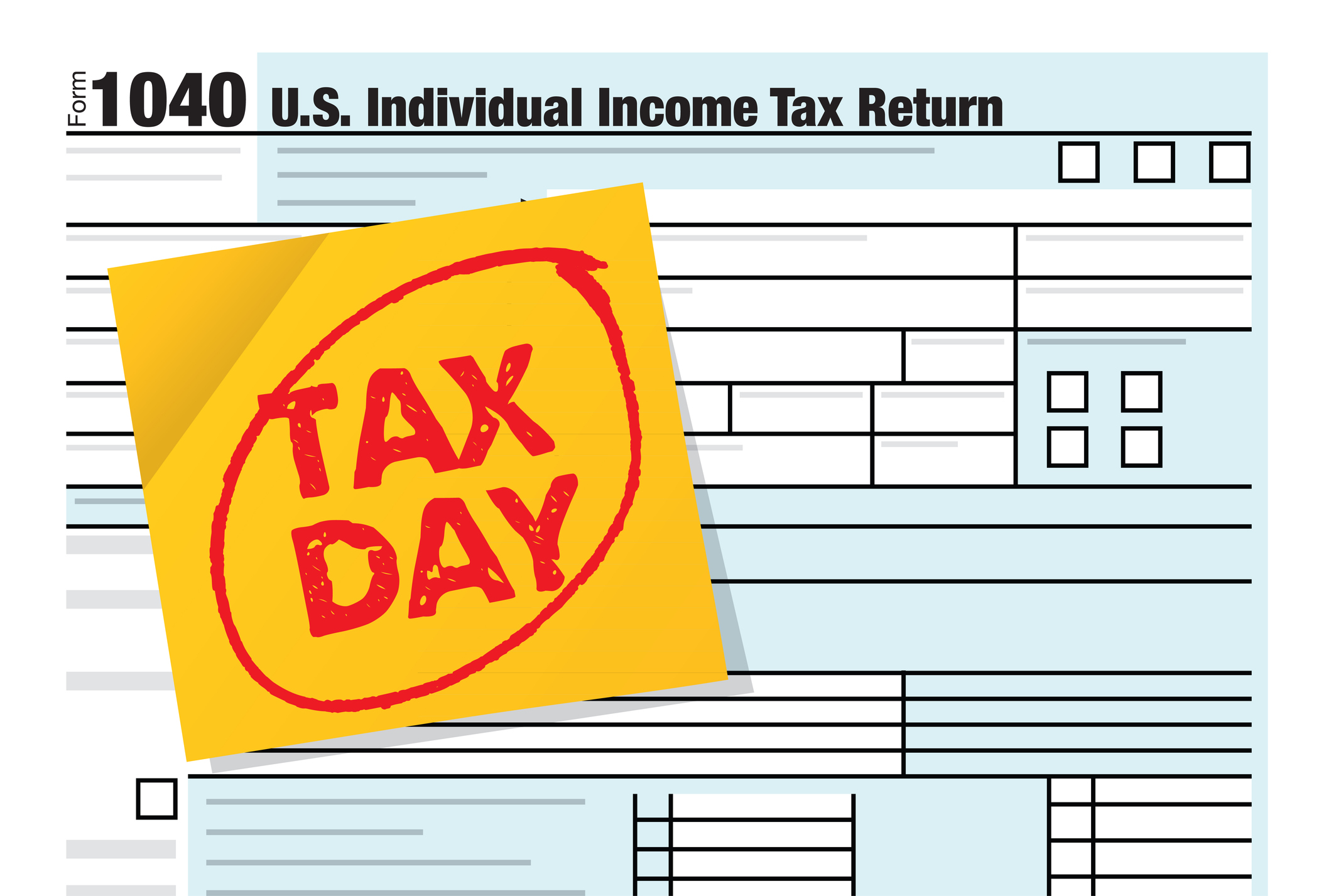Nine Tax Deadlines for April 15
Do you know about all the other tax deadlines that fall on April 15?


Profit and prosper with the best of Kiplinger's advice on investing, taxes, retirement, personal finance and much more. Delivered daily. Enter your email in the box and click Sign Me Up.
You are now subscribed
Your newsletter sign-up was successful
Want to add more newsletters?

Delivered daily
Kiplinger Today
Profit and prosper with the best of Kiplinger's advice on investing, taxes, retirement, personal finance and much more delivered daily. Smart money moves start here.

Sent five days a week
Kiplinger A Step Ahead
Get practical help to make better financial decisions in your everyday life, from spending to savings on top deals.

Delivered daily
Kiplinger Closing Bell
Get today's biggest financial and investing headlines delivered to your inbox every day the U.S. stock market is open.

Sent twice a week
Kiplinger Adviser Intel
Financial pros across the country share best practices and fresh tactics to preserve and grow your wealth.

Delivered weekly
Kiplinger Tax Tips
Trim your federal and state tax bills with practical tax-planning and tax-cutting strategies.

Sent twice a week
Kiplinger Retirement Tips
Your twice-a-week guide to planning and enjoying a financially secure and richly rewarding retirement

Sent bimonthly.
Kiplinger Adviser Angle
Insights for advisers, wealth managers and other financial professionals.

Sent twice a week
Kiplinger Investing Weekly
Your twice-a-week roundup of promising stocks, funds, companies and industries you should consider, ones you should avoid, and why.

Sent weekly for six weeks
Kiplinger Invest for Retirement
Your step-by-step six-part series on how to invest for retirement, from devising a successful strategy to exactly which investments to choose.
The April 15 federal income tax filing deadline is just around the corner, but it’s not the only one. Several other tax deadlines also fall on Tax Day. Missing some of these deadlines might cause you to lose out on tax savings, and not meeting others can result in financial penalties.
Here is what you need to know about other tax deadlines for April 15, 2025.
(Note: If you live in an affected area of a state with an IRS tax deadline extension due to severe storms and natural disasters, you may have a different federal tax filing due date.)
From just $107.88 $24.99 for Kiplinger Personal Finance
Become a smarter, better informed investor. Subscribe from just $107.88 $24.99, plus get up to 4 Special Issues

Sign up for Kiplinger’s Free Newsletters
Profit and prosper with the best of expert advice on investing, taxes, retirement, personal finance and more - straight to your e-mail.
Profit and prosper with the best of expert advice - straight to your e-mail.
Related: You May Have More Time to File if You Live in These States
1. Tax filing deadline

The 2024 federal income tax return filing deadline is April 15 this year. Failing to file your tax return by midnight on Tax Day could cost you a failure-to-file penalty, which is 5% of unpaid taxes for each month (or partial month) the tax return is late.
If you’ve missed your deadline and have a balance due, the IRS will send you a notice or a letter indicating you must pay the penalty fee.
That being said, if you are owed a tax refund, you don’t have to worry about this penalty. The IRS may also remove or reduce your penalties if you acted in good faith and can prove reasonable cause for being unable to meet your tax obligations on time. Some examples of valid reasons for failing to pay or file on time include:
- Inability to access records
- A natural disaster or civil disturbance
- Death, serious illness, or unavoidable absence of the taxpayer or immediate family
- System issues that delayed electronic filing or payment
Related: Key IRS Changes to Know Before You File
2. Deadline to file for a federal tax extension

If you don’t think you will make the April 15 filing deadline, make sure you file for a federal tax extension before Tax Day. Requesting an extension before the due date will save you from the failure-to-file penalty and give you until Oct.15 to file. There are two ways to request a tax extension.
- File Form 4868
- Submit an electronic payment and select Form 4868 as your payment type. (The IRS will automatically recognize this as a tax extension request.)
Regardless of which option you choose, your tax bill is still due by April 15 (more on that below).
Related: How to Get More Time to File Your Tax Return
3. Deadline to pay taxes

April 15 is also the deadline to pay the IRS federal taxes due, whether or not you requested a tax extension. If you haven’t filed yet, you might not know the exact amount you owe. However, the IRS won’t impose a late payment penalty if you pay at least 90% of your tax bill so you can estimate to some degree. Just remember that your unpaid taxes will continue to accrue interest and penalties until your bill is paid in full.
IRS payment plans: The IRS has several options for taxpayers who can’t pay their taxes in full, including payment plans. It’s important to pay the IRS or make arrangements to pay as soon as possible. Ignoring a tax bill can result in financial penalties, and in severe cases, the IRS could place a federal tax lien on your property, possibly seize certain assets, and garnish your wages.
Note: If you have a household employee, April 15 is also the deadline to pay employment taxes.
Related: How to Pay the IRS if You Owe Taxes
4. 2024 HSA contributions deadline

Although 2024 has ended, eligible taxpayers still have time to contribute to their health savings accounts (HSAs). That means you have until April 15, 2025, to make HSA contributions that apply to the prior tax year. Before you do, you might want to check your past contributions. Exceeding the HSA contribution limit comes with financial penalties.
- For 2024, you can contribute up to $4,150 for self-only coverage
- If you had family coverage, the contribution limit is $8,300
- People 55 and older can contribute an additional $1,000
Employer contributions also count toward contribution limits. So don’t forget to check those too.
5. 2024 IRA contribution deadline

As with the HSA deadline, taxpayers have until Tax Day to contribute to their traditional or Roth IRAs (individual retirement accounts) for 2024 tax purposes. While Roth IRA contributions are considered taxable income, making contributions could qualify some taxpayers for the Saver’s Credit. The credit is nonrefundable and is worth up to 50% of the first $2,000 ($4,000 for joint filers) you contribute to retirement accounts.
Traditional and Roth IRAs also come with contribution limits.
- You can contribute up to $7,000 to your 2024 traditional or Roth IRA
- Taxpayers age 50 and older can contribute up to $8,000
- The total contributions between all your IRAs count toward the annual contribution limit
You also have until April 15 to contribute to your employees’ SEP IRA accounts. Making contributions to this type of IRA may lower your tax liability. You can deduct up to 25% of employee compensation or the amount of your contributions, whichever is less.
6. Correct excess IRA contributions

If you accidentally contributed too much to your 2024 IRA (known as ineligible contributions), you still have time to correct the mistake. Withdrawing the excess contributions by April 15 will spare you from a 6% penalty. Thankfully, IRA contribution limits are higher for 2024 than they were last year. So it might make sense to apply the excess amount to this tax year instead.
7. Contribute to your solo 401(k) plan

Self-employed taxpayers have until April 15 to contribute to solo 401(k) accounts. Just make sure you don’t exceed these 2024 contribution limits if you choose to make additional contributions:
- $69,000 or 25% of your net adjusted self-employment income, whichever is less
- If you are making catch-up contributions and are 50 or older, you can contribute up to $76,500 or 25% of your net adjusted self-employment income, whichever is less
8. Make your first 2025 estimated tax payment

If you have taxable income but don’t have income taxes withheld from your paycheck, your first estimated tax payment for the 2025 tax year is due on April 15. Underpaying or failing to make the payment altogether could result in financial penalties. You can use Form 1040-ES to calculate your estimated tax payment.
Remember, there are two other estimated tax payments due in 2025. However, you can skip those if you pay all your 2025 estimated taxes by the April 15 deadline.
9. State tax deadlines

Most state income taxes are also due on April 15 this year. However, some states have later filing dates.
Additionally, some states granted tax extensions to eligible residents following natural disasters. For example, residents of impacted areas from California wildfires are eligible for an extended tax deadline, as well as certain IRS disaster-related tax breaks.
If you’ve lost your tax records during a natural disaster, you must recover your tax documents as soon as possible to be able to claim relief. Taxpayers should also check with their state's revenue department to see when taxes are due since states can impose late filing and payment penalties.
For more information, see Kiplinger's report on states with IRS tax deadline extensions.
Related Content
- Tax Tips for Last-Minute Filers
- When Are Estimated Tax Payments Due?
- When Are Taxes Due in 2025? Tax Deadlines by Month
Profit and prosper with the best of Kiplinger's advice on investing, taxes, retirement, personal finance and much more. Delivered daily. Enter your email in the box and click Sign Me Up.

Katelyn has more than 6 years of experience working in tax and finance. While she specialized in tax content while working at Kiplinger from 2023 to 2024, Katelyn has also written for digital publications on topics including insurance, retirement, and financial planning and had financial advice commissioned by national print publications. She believes knowledge is the key to success and enjoys providing content that educates and informs.
-
 The New Reality for Entertainment
The New Reality for EntertainmentThe Kiplinger Letter The entertainment industry is shifting as movie and TV companies face fierce competition, fight for attention and cope with artificial intelligence.
-
 Stocks Sink With Alphabet, Bitcoin: Stock Market Today
Stocks Sink With Alphabet, Bitcoin: Stock Market TodayA dismal round of jobs data did little to lift sentiment on Thursday.
-
 Betting on Super Bowl 2026? New IRS Tax Changes Could Cost You
Betting on Super Bowl 2026? New IRS Tax Changes Could Cost YouTaxable Income When Super Bowl LX hype fades, some fans may be surprised to learn that sports betting tax rules have shifted.
-
 Betting on Super Bowl 2026? New IRS Tax Changes Could Cost You
Betting on Super Bowl 2026? New IRS Tax Changes Could Cost YouTaxable Income When Super Bowl LX hype fades, some fans may be surprised to learn that sports betting tax rules have shifted.
-
 Should You Do Your Own Taxes This Year or Hire a Pro?
Should You Do Your Own Taxes This Year or Hire a Pro?Taxes Doing your own taxes isn’t easy, and hiring a tax pro isn’t cheap. Here’s a guide to help you figure out whether to tackle the job on your own or hire a professional.
-
 Trump $10B IRS Lawsuit Hits an Already Chaotic 2026 Tax Season
Trump $10B IRS Lawsuit Hits an Already Chaotic 2026 Tax SeasonTax Law A new Trump lawsuit and warnings from a tax-industry watchdog point to an IRS under strain, just as millions of taxpayers begin filing their 2025 returns.
-
 Can I Deduct My Pet On My Taxes?
Can I Deduct My Pet On My Taxes?Tax Deductions Your cat isn't a dependent, but your guard dog might be a business expense. Here are the IRS rules for pet-related tax deductions in 2026.
-
 Don't Overpay the IRS: 6 Tax Mistakes That Could Be Raising Your Bill
Don't Overpay the IRS: 6 Tax Mistakes That Could Be Raising Your BillTax Tips Is your income tax bill bigger than expected? Here's how you should prepare for next year.
-
 Oregon Tax Kicker in 2026: What's Your Refund?
Oregon Tax Kicker in 2026: What's Your Refund?State Tax The Oregon kicker for 2025 state income taxes is coming. Here's how to calculate your credit and the eligibility rules.
-
 Will IRS Budget Cuts Disrupt Tax Season? What You Need to Know
Will IRS Budget Cuts Disrupt Tax Season? What You Need to KnowTaxes The 2026 tax season could be an unprecedented one for the IRS. Here’s how you can be proactive to keep up with the status of your return.
-
 3 Retirement Changes to Watch in 2026: Tax Edition
3 Retirement Changes to Watch in 2026: Tax EditionRetirement Taxes Between the Social Security "senior bonus" phaseout and changes to Roth tax rules, your 2026 retirement plan may need an update. Here's what to know.